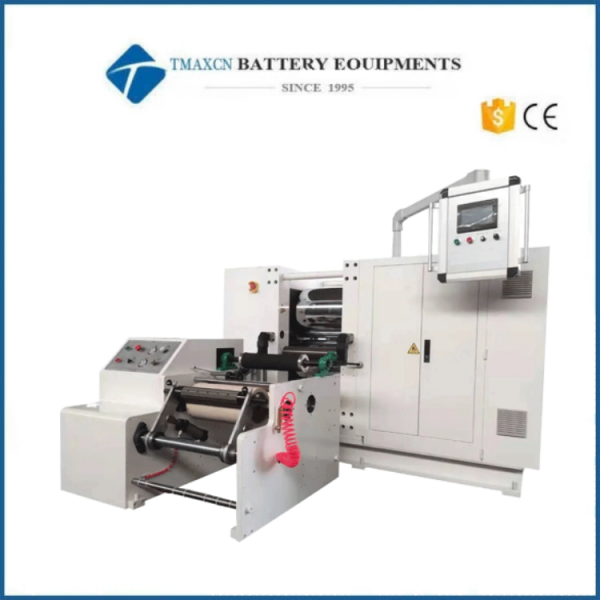Situs Blog
Hubungi kami
- Jika Anda memiliki pertanyaan, silahkan hubungi kami, Semua pertanyaan akan dijawab
- Email : David@tmaxcn.com
- Email : Davidtmaxcn@gmail.com
- Tambahkan : No. 39, Xinchang Road, Xinyang, Haicang Dist., Xiamen, Fujian, China (Mainland)
Hot produk
A dry electrode machine is a specialized piece of equipment used in the production of electrodes for lithium-ion batteries and other energy storage devices. This technology eliminates the use of solvents in the electrode fabrication process, resulting in a more environmentally friendly and efficient manufacturing method.
● Key Features of Dry Electrode Machines
1. Solvent-Free Process: By using dry powder materials, these machines reduce environmental impact and eliminate the need for solvent recovery systems, leading to lower operational costs.
2. High Efficiency: The dry electrode process can be faster than traditional methods, allowing for increased production rates and reduced cycle times.Equipment needed Battery Electrode cutting machine.
3. Enhanced Material Utilization: The absence of solvents means higher active material loading, which can improve the overall energy density of the batteries produced.
4. Simplified Manufacturing: The dry process often requires fewer processing steps, simplifying the overall manufacturing workflow.
● Key Processes Involved
1. Material Preparation: Active materials (such as lithium compounds), conductive additives, and binders are mixed in a dry form to create a powder blend.
2. Electrode Forming: The dry powder is pressed or rolled into sheets to form the electrode layers. This step may involve techniques like calendaring or roll-to-roll processing.
3. Electrode Cutting: The formed sheets are cut into specific sizes and shapes suitable for the battery design.
4. Assembly: The dry electrodes are then assembled with separators and electrolytes to create battery cells, without the need for drying or curing stages associated with wet processes.
● Advantages of Dry Electrode Machines
1. Environmental Benefits: The elimination of solvents reduces hazardous waste and complies with environmental regulations, making the process more sustainable.
2. Cost Savings: Reduced material costs, lower energy consumption, and simplified processing can lead to significant savings in production.
3. Improved Performance: Higher active material loading can enhance the energy density and overall performance of the batteries, making them more competitive in the market.
4. Flexibility: Dry electrode technology can be adapted for various battery chemistries, including lithium-ion, sodium-ion, and solid-state batteries.
● Applications
- Lithium-Ion Batteries: Widely used in electric vehicles, consumer electronics, and renewable energy storage systems.
- Emerging Battery Technologies: Applicable in the development of next-generation batteries, including solid-state and sodium-ion batteries.
● Considerations
1. Material Compatibility: Not all active materials may be suitable for dry processing, requiring careful selection and testing.
2. Technical Expertise: Operating dry electrode machines may require specialized knowledge to optimize the process and ensure consistent quality.
● Conclusion
The dry electrode machine represents a significant advancement in battery manufacturing technology, offering a sustainable and efficient alternative to traditional solvent-based methods. As the demand for high-performance batteries continues to grow, dry electrode technology is poised to play a critical role in meeting industry needs while promoting environmentally friendly practices. With ongoing research and development, this technology is likely to evolve, further enhancing its capabilities and applications in the energy storage sector.
 English▼
English▼





 +86 13174506016
+86 13174506016 David@tmaxcn.com
David@tmaxcn.com

